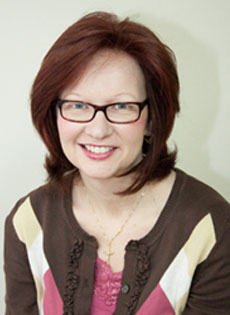
It's all about CONVERSION!
Monday, September 29, 2008
*Cheryl Whapham
Pope Benedict XVI declared June 28, 2008 through June 29, 2009 the Year of
St. Paul in order to commemorate the 2000th anniversary of his birth. St.
Paul is the perfect example of how deeply and profoundly an experience of
conversion will change a human life. Paul, a man who loved God and his
religious tradition, was persecuting the followers of Christ because they were
not following the Law. After meeting with the high priest in Jerusalem, he
was on his way to Damascus when he encountered the Risen Christ (1 Cor 15.8).
Immediately, Paul realized that Jesus was the Messiah the Jews had been waiting
for and committed the rest of his life to understanding and proclaiming the
message of Jesus. Paul experienced a profound and life-changing
conversion.
The glossary in the Catechism of the Catholic Church defines conversion as “a
radical reorientation of the whole life away from sin and evil, and toward God.
This change of heart or conversion is a central element of Christ’s preaching,
of the Church’s ministry of evangelization…”
Just like St. Paul, our conversion toward God inevitably leads us to learn more
about Christ. The more we learn about Christ, the more compelled we are to
conform our lives to be more like Jesus’. If there is a problem with our
Church today it’s that we are afraid of conversion. We are afraid of the
“radical reorientation” that conversion demands. We are afraid that if we
come to know Christ intimately and personally so many aspects of our lives will
need to change. But we should not fear this change. Our God is a God of
profound love and affection. Any change in our lives that we make to know,
love and serve God will only be a blessing to us and the lives that intersect
with ours. In knowing and loving God, we will find peace and happiness.
We will also find the strength and courage to carry the message of Jesus into
our neighbourhoods and places of work.
In 1999, the U.S. Conference of Catholic Bishops wrote in the document Our
Hearts Were Burning Within Us: “We are entering a period of new vitality for the
Church, a period in which adult Catholic laity will play a pivotal leadership
role in fulfilling the Christian mission of evangelizing and transforming
society. For adults to fulfil their roles in this new era of the Church,
their faith formation must be life long, just as they must continue to learn to
keep up with a changing world.”
It’s true. Think of all the things you have learned to do in the last
year…I’ve learned to download and upload digital media, a friend of mine trades
stocks online, and another has made a huge profit selling the contents of her
garage on eBay. These are all newly acquired skills for each of us; even
as adults we needed to continue to learn or retool to stay current and relevant
in today’s global market. Our Catholic faith calls us to constantly learn,
to be ready to acquire new skills to serve the Kingdom. We must be open to
an ongoing and life-long conversion toward Christ, to know him more deeply and
be ready to transform our society.
What are you doing to grow in your personal relationship with Christ? How
have you experienced conversion in your life? I would love to hear from
you!
Cheryl J. Orwig Whapham
Director, Lay Ministry and Adult Faith Formation


Comments from readers
God bless you! Thank you for participation in the blog. I think that it's quite appropriate to start with St. Paul whenever we discuss the experience of conversion. First I give thanks to the initiative of the Holy Father to celebrate the Jubilee Year of St. Paul. We need to study and understand the teachings and thoughts of St. Paul much better in order to avoid the misunderstanding of few about this great man.
Regarding the experience of conversion, St. Paul is the greatest example of how the conversion operates: (1) It could occur as a sudden and unexpected lightening moment (Acts 9) or, (2) It is a process of many years, most probably, all during our lives. Conversion may or may not be a sudden and dramatic change in our life (metanoia); however, it always needs to be a constant task. That's probably where the conversion becomes a real heroic act in our lives. I recall when in my younger years I was in Cuba during the early attacks of the communists to the Church, how I was ready to offer my life if necessary. However, once I was outside the Island, and was free to practice my faith, it became more difficult to live my earlier dedication and enthusiasm for the Church. Then it was necessary for me to seek a constant conversion, a real turn around to focus again and again in my baptismal commitment to be faithful to the Good News that I have received earlier.
Together with my patron saint, Santa Teresa, I pray that I remain faithful to the Church until the day I am called to meet my Lord in a constant conversion to the perfection that Christ is always calling us.
The grace of the Holy Spirit is freely given to all at our Baptism (CCC 1262). The Catechism also says that Baptism is a sacrament of faith. And faith develops within the community of believers. For children and ADULTS, faith must grow after Baptism (CCC 1253-1254). This is why we renew our Baptismal promises at Mass during the Easter Season, and why we bless ourselves with holy water when we enter Church, all to remind ourselves of the grace we recieved at Baptism and a desire to grow in faith.
So when does this grace, this faith, become our own or in your words 'get put into action'...it depends on the individual. Some people experience growth in faith in times of difficulty, others gradually and slowly day by day...the important thing is to recognize that it is our mission to grow in faith and to seek opportunities to do so and/or capitalize on the ones put in our path.
Peace,
Cheryl
You and Michael are wonderful examples of people who live a life committed to the Church and committed to life-long conversion. It is obvious to those who have the privilege to know you that you reflect on your day and say, 'Where did I see God working in my life today?" When we are able to see God actively journeying with us, it is hard NOT to have conversion take place.
Thanks for your ministry at Morningstar. I hope some of the readers are encouraged to go on a retreat or participate in some of the great adult faith formation opportunities you sponsor at the Center.
Peace,
Cheryl
First of all, I will add you, your wife and your son to my prayers for healing and courage.
I think you speak for many, many people when you say you experience conversion in times of pain and difficulty. It seems we humans are most able to hear our Lord and feel God's presence when we are vulnerable. It is a blessing to experience conversion at these times when we so desperately need to be held in the Lord's care. I think the struggle is to maintain this intimate relationship with the Lord when the tide turns and we are less vulnerable?
Pilgrimage is another great way to experience conversion. Many in our Archdiocese participated in the Our Lady of Guadalupe pilgrimage during the Jubilee year. I wonder if that was a conversion experience for anyone? Or how about all the young adults that recently returned from their pilgrimage to Sydney for World Youth Day...are you closer to the Lord now than you were before?
Peace,
Cheryl
I found your discussion of conversion very timely. Conversion occurs when I am able to ask for teh needed grace in times of difficultyand temptation.
This is how I have come to understand it:
I have come to understand Jesus' promise that we would receive anything we asked for in His name as meaning when we ask for spiritual gifts they will be given.
Actually, It seems to me that the gifts of teh Holy Spirit are given to us at Baptism and Confirmation, but they only are put into action when we ask for help in a difficult situation.
Do you think that this is in conformity with the teachign of teh Church as reflected in the Catechsim of the Catholic Church?
Richard
Thank you for your reply. You bring up some very timely points. Next month, Oct. 5-26 to be exact, there will be the meeting of the 12th General Assembly of the Synod of Bishops in Rome. The theme for their meeting is "The Word of God in the Life and Mission of the Church". You can find the agenda for their meeting on the Vatican website which is www.vatican. va From what I understand the main goal of the gathering is to discuss how to get the faithful to read the bible and truly embrace Scripture like never before. One of the recommendations is to promote the daily prayer of the Church known as the Liturgy of the Hours or the "Divine Office". Most lay people still associate this prayer with clergy and more specifically monastic orders. However, as you know, this is a prayer that is for everyone. You can learn more about the Liturgy of the Hours in the Catechism of the Catholic Church, paragraph numbers 1174-1178.
The bishops are also going to be emphasizing 'lectio divina' or divine reading. Lectio Divina is a prayer form where the word of God is read and mediated upon and therefore becomes prayer. Lectio Divina is used in the Liturgy of the Hours but can be used with any Scripture passage. I like to suggest to adults to try meditating on the Sunday Gospel before Mass each week. I find that it really enhances my ability to pray during Sunday Mass. I just did a quick web search on Lectio Divina. There is a lot of good information out there on this form of prayer, particularly by the Benedictines.
Finally, I couldn't agree more that retreats are a wonderful way to experience conversion. There are lots of retreat opportunities in the Archdiocese of Miami. MorningStar Retreat and Renewal Center www.morningstarrenewal.org and Manresa Retreat House offer day long events, weekend retreats, etc. Many parishes offer Emmaus retreats and discipleship retreats. But conversion happens all the time everywhere as long as we are open to the Holy Spirit in our lives.
Peace be with you,
Cheryl
I believe we can only grow in that relationship - or any other - by knowing more, and the only way to know more is to learn...in this particular case, learn His word. Different things work for different people, e.g. some like to say the Rosary, others read the Bible every day, etc. I found my daily bread in the Liturgy of the Hours and in Lectio Divina (Lectio, Meditatio, Oratio, Contemplatio) - but as you state in your article, these are life-long learning endeavors and not simply "learning" or mastering something.
How have you experienced conversion in your life?
Emmaus, Emmaus, Emmaus there's no better conversion retreat. There's nothing better than listening to a sinner talking and living like a Saint.
God bless you all!